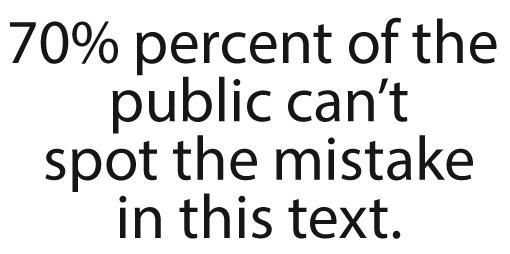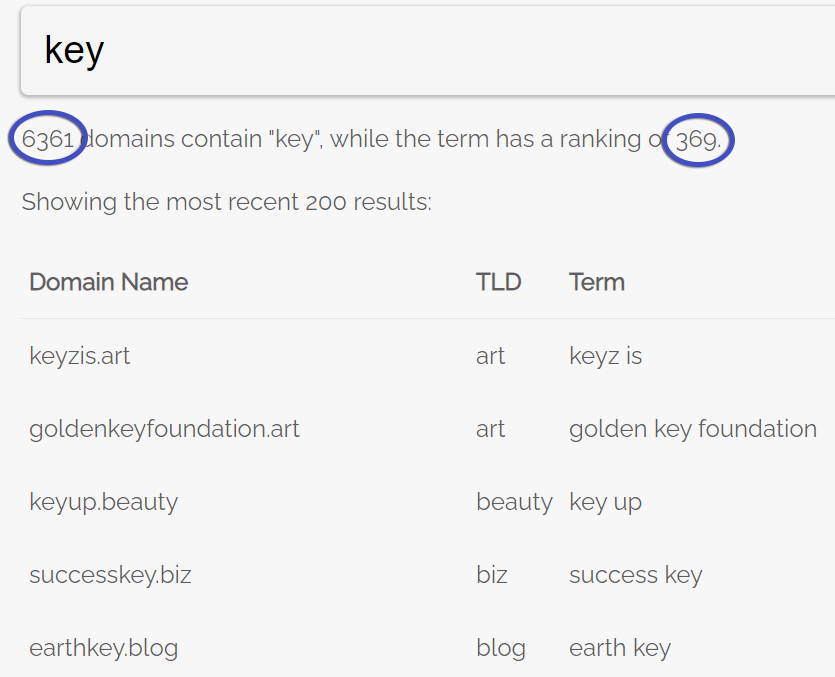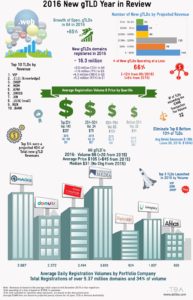How Powerful Words Prove Beneficial in a Domain Name

547,200 new websites and 7.5 million blog posts go live every day1. Users may be interested in your product, service or content and want to return to that site, if only they could remember it. You can *hope* they will find it again in one of those 7.8 billion daily searches but why? Instead, listen to the voice of wisdom (aka your mom) who constantly reminded you to ‘work smarter…not harder’2. If you prefer to take the more difficult route and use your summer weekends working on SEO over SUN, then fill your boots. Otherwise, lend a helping hand to your visitors with a domain name they can recall.
Choose Your Words Oh…So…Scrupulously
Words have immense power. A force to identify themes, topics, concepts, categories, sentiment, power-hierarchy, gender, age and personal bias. They can make the invisible appear real – they conjure up emotional reactions, shape the way we think and influence our perceptions. Hence, selecting the right words for your domain can utilize the power of preconceived affiliations and instantly establish a connection with your audience, resulting in a split-second decision to click to your site or continue to scroll to a more relevant option.
The words we use can have significant affect: just think back to a personal conflict where you fumbled over a few words and steam started to appear from the person’s ears, and then once you added a few more carefully chosen words, did you see the tension mercifully dissipate. Your domain name is the frame, it is the foundation your site is built upon. The question is whether you want to build it on a lot with tumbleweeds blowing by or on a glittering boulevard full of tourists.
A Domain Name People Can Recall = A Website They Can Revisit
How do you select domains that will advance your ever more-critical website?
- Select a few keywords that describe the essence of your site.
- Determine if the .com is available or listed in the aftermarket (sedo.com). If not, determine if other available extensions such as .shop, .design, .app, etc. or a brandable domain (one that sounds like a brand – generic and a bit strange, like Google) makes sense. Often, start-ups focus on their core business until they’re successful and later upgrade their domain like Zoom did when they purchased zoom.com and forwarded it to their original zoom.us domain.
- Ensure the name is pronounceable and easy to spell: “theshop4u” will distract users on how it’s spelled rather than the site’s purpose.
- Avoid filler words such as ‘the’ and characters that the brain ignores or easily confuses, including hyphens and underscores. Also be cognisant of international audiences and spelling variations such as ‘ize’/ ‘ise’ in organize/organise and words where an ‘e’ is dropped (ageing/aging).
- Select the right tense and determine if the singular or plural version makes the most sense. My favorite, “Key made here” is only helpful if I needed to know they once cut a key, but inherently unhelpful if I need some keys cut tomorrow.
- If still nothing jumps out at you and it should, then evaluate other related words. Check out www.dottba.com/top-terms to use the power of the crowd to determine how words rank and view recently registered names across all Top-Level Domains (TLDs). Notice how certain domains catch your attention while others seem rather, meh. Also, be aware of how words attract different demographics – younger populations are more prone to use slang and text speak (‘lol’, ‘idk’, ‘brb’) while other words may inadvertently contain negative connotations e.g. crude, slang for crude oil will resonate differently depending on the audience.

Also, pay attention to any preconceived word affiliations and your own biases. Females tend to use first-person singulars, emotional words (‘excited’) whereas males are more likely to use object references (‘Xbox’). By selecting high ranking words, you can select words that resonate with and are more memorable for your visitors.
- Select an intuitive and relevant domain. If you have the option, go broad rather than specific. For instance, do I want to learn to cook with gas, or as not so subtly suggested by friends, do I need a course in basic cooking (firefighters not required).
- Avoid trademark names, for example your shop might fix iPhone screens, but registering iphone.shop is infringing on Apple’s trademarks and is not good for business, even if you own a law firm. If you are unsure if a term is trademarked, run a quick search at https://tmsearch.uspto.gov/.
- Create a short list of options and ask a few trusted friends for their opinion. Chances are, you’ll be surprised with why they prefer one name over another.
- Finally, before selecting your domain, review the TLD to ensure its not on a list of flagged domains. Also check the renewal price. Because nobody likes costly surprises.
Ultimately, you want to choose a crisp, credible and clean domain that is easy to type, say and share. It delivers what users expect: relevant high-quality content that will impress your audience and in turn, the search engines. Choose them carefully as those few words (ideally one) are powerful and impactful to visitors and to your business alike.
1Internet Live Stats 2021, accessed 18 March 2021, https://www.internetlivestats.com/google-search-statistics/ 1Internet Live Stats 2021, accessed 18 March 2021, https://www.internetlivestats.com/watch/websites/ 2Mulej M. (2000) Allan Mogensen (1901–1989). In: Beyerlein M.M. (eds) Work Teams: Past, Present and Future. Social Indicators Research Series, vol 6. Springer, Dordrecht. https://doi.org/10.1007/978-94-015-9492-9_9




 Previous Post
Previous Post

